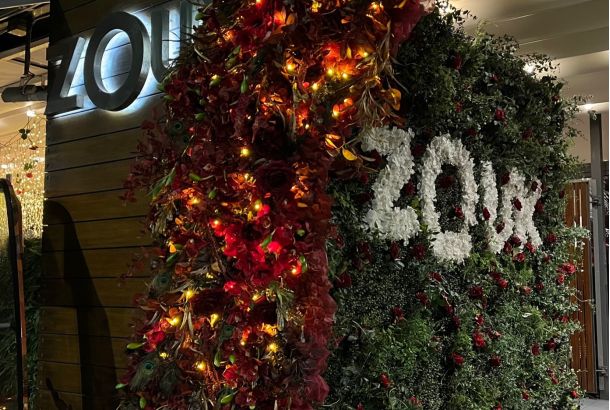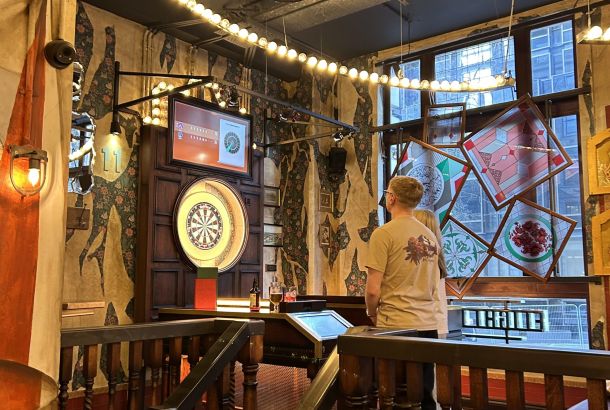The Manchester Coffee Festival run-down
By hamzaali
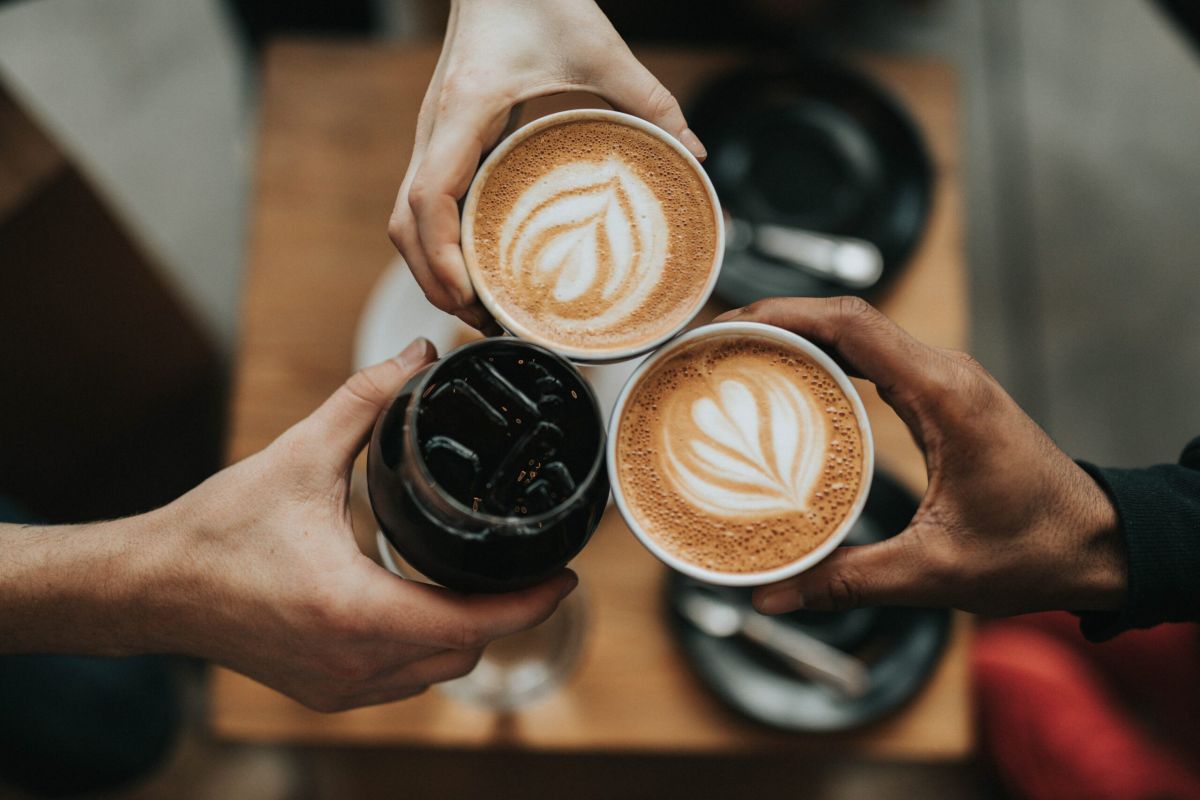
Cup North is a Manchester coffee festival that celebrates and brings together roasters, baristas, and even oat milk makers up in the North who dedicate their passions to perfecting our everyday luxury: coffee! This year, the festival took place over 12 – 13th November and it is safe to say that it wasn’t just the coffee that was stimulating (and delicious); I had interesting conversations with some of the wonderful characters behind our daily brew as well.
Glebe Farm
Glebe Farm offers two types of oat milk: Barista and fortified. The Barista oat milk is creamy and full-bodied, mainly used for making hot drinks; whereas the fortified oat milk is the most similar to milk I have had, designed mainly for cereal milk usage.
You may have heard of Glebe Farm before, as they were taken to court by Oatly for intellectual property infringement; however, they successfully fended off the lawsuit. While discussing sustainability and the environmental impact of production, I was told about Glebe Farm’s dedication to reducing its carbon footprint throughout its production process by utilising on-site solar energy as an electricity source, and by shortening the supply chain by building much of its oat milk processing near its oat farms.
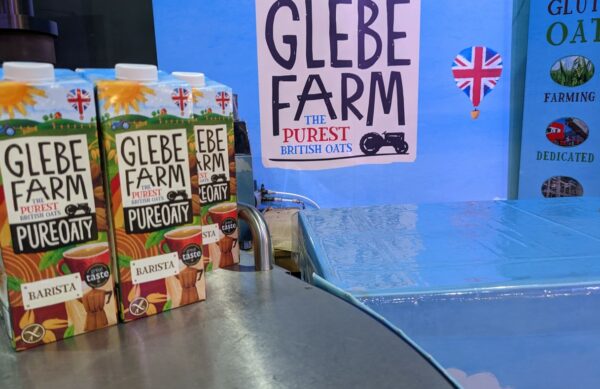
Indochina Coffee
I went to a tasting at Indochina coffee, run by a husband and wife duo. Their experience while working in Bangkok was their impetus to become exporters of Asian coffees. A unique aspect of their coffees is the type of processing; most processing is what we call ‘washed’, where everything besides the bean is stripped off prior to drying. But much of the coffee I had went through ‘natural’ processing, where the coffee fruit is left whole and dried.
Washed processing is the industry standard as it is said to provide a cleaner cup; however, I am personally more in favour of the complexities of flavour that arise from natural processing. Out of all the cups that stood out to me, my favourite has to be the ‘Baba Budan’ an Indian-origin natural processed coffee which had a deep smokiness and peppery kick at the back of the throat which contrasted the tang that was a recurring note among the natural processed coffees.
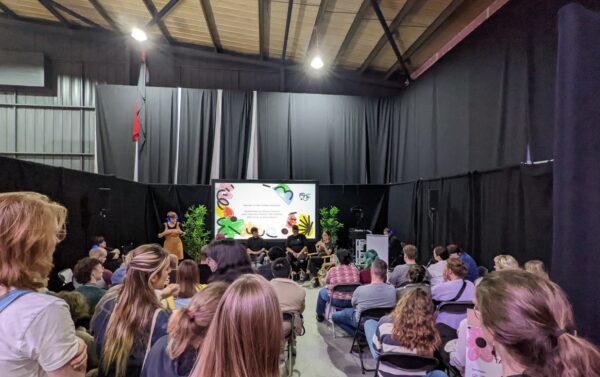
Minor Figures
Initially, Minor Figures started as a coffee shop but now oat milk manufacturing takes up 95% of their business. After talking to their representative, Brian, I came to realise the fun and creative energy this company brings to the coffee scene. Don’t let their dedication to simplicity fool you into thinking they’re not experimenting with flavours. Our discussion circled around how plant milk gives coffee artisans another dimension to play with in creating unique blends, evident through my tasting of the Oat Flat White that Brian made, which had a wonderful flavour reminiscent of strawberries and cream.
Ancoats Coffee
The coffee roasters from Manchester’s very own bougie stompings. I dived into a conversation with the guys from Ancoats Coffee about importing coffee and how they choose to do so. Over a filter blend of honey Gesha — which is an apt description as I felt the strong note of warm honey sweetness — they explained how they know the producers of every coffee bean imported, and are invested in building local farmer relations to reduce costs and maximise benefits for farmers and roasters.
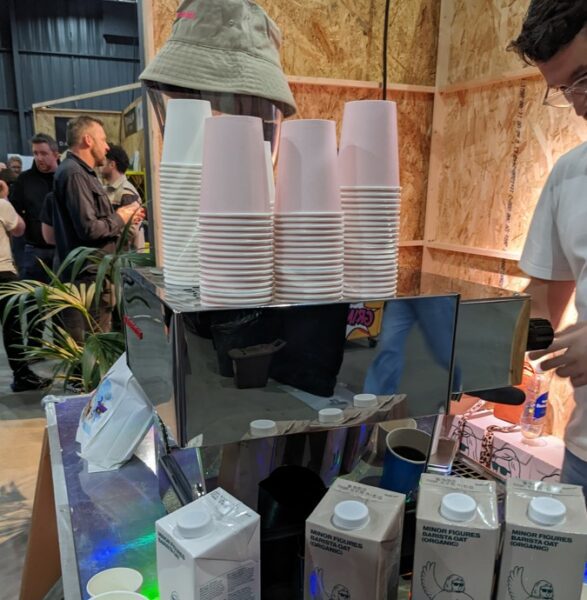
Atkinsons
As one of the oldest, still-running coffee roasters in the UK, potentially in Europe, Atkinsons was established in 1883. As a history nerd, I appreciated the connection to Northern history that this shop-turned-coffee company is linked to. I tried out the Kinnisia coffee, a refreshing and sweet cup that was pure joy to sip from.
As I drank, Atkinsons representatives and I discussed the short-term economic prospects of the coffee business, hopeful that even as we go into recession, people will still choose to enjoy luxuries like coffee. Atkinsons’ expansion plans are quite humble as they aim to maintain their shops within arm’s reach to keep the business personal and intimate.

